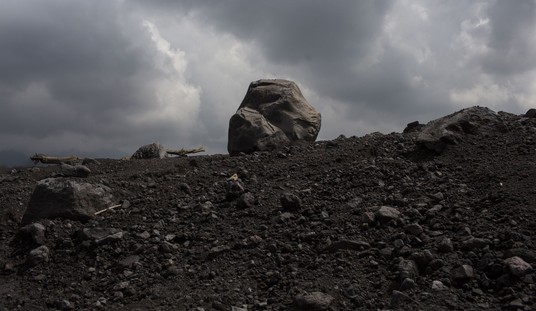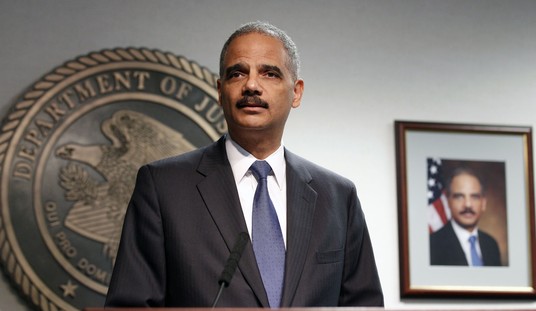The UN has found it difficult to keep the “food pipeline” open to the people in Darfur, thanks to a lack of security along the roads and in the villages. The Sudanese government does not provide reliable escorts, and UN workers have had their trucks hijacked and their stations robbed. Thanks to the rainy spring, the crisis could escalate into a deadly famine — and all of this may sound familiar to Americans:
The World Food Programme is to halve food rations for up to 3 million people in Darfur from next month because of insecurity along the main supply routes. At least 60 WFP lorries have been hijacked since December in Sudan’s western province, where government forces and rebels have been at war for five years. The hijacks have drastically curtailed the delivery of food to warehouses ahead of the rainy season that lasts from May to September, when there is limited market access and crop stocks are depleted.
Instead of the normal ration of 500 grams of cereal a day, people in displaced persons’ camps and conflict-affected villages will only get 225 grams from next month, the UN agency said yesterday. Rations of pulses and sugar will also be halved, giving people barely 60% of their recommended minimum daily calorie intake.
The WFP said that while Sudan’s government provided security for convoys on the main supply routes, the escorts were too infrequent, given the huge demand for food at this time of year. “Attacks on the food pipeline are an attack on the most vulnerable people in Darfur,” said Josette Sheeran, the agency’s executive director. “With up to 3 million people depending on us for their survival in the rainy season, keeping WFP’s supply line open is a matter of life and death. We call on all parties to protect the access to food.”
Thirty nine hijacked lorries and 26 drivers are still missing. More than 90 vehicles belonging to other aid agencies have also been hijacked this year, with some drivers forced to work for the combatants.
The robberies have become more bold. On one night in one town, nine separate robberies took place at UN compounds. These happened at the same time that the Janjaweed militias decided to launch new attacks on the people of Darfur, angry at not getting paid off by their allies in the government. The attacks on the food lifeline seem to be part of the same effort — to starve out the people of Darfur.
Unfortunately, the security situation won’t improve soon. The UN-AU alliance that was supposed to put 26,000 troops in Darfur — too few even at that number — have only produced less than 10,000. The Guardian splits the blame between “UN bureaucratic delays” and the Khartoum government, but the latter had to be pressured into accepting the force in the first place. Didn’t the UN anticipate the delay in securing their own lines in communication, and if they did, why didn’t they have a plan to expedite it?
This should remind people of the situation in Somalia in 1992. The UN could not reliably deliver food to starving masses thanks to fights between the warlords. The US agreed to provide security and soon found ourselves under attack by those using famine for political and military purposes, just as in Darfur now. In 1993, Bill Clinton changed the mission from security to attack but failed to bring the proper resources to bear, and wound up ordering a humiliating retreat — which caught the attention of Osama bin Laden.
The lesson from that should have been recognized at the UN. Now, with its personnel under fire and unable to secure their own facilities, the UN will have to choose between bolstering its security and changing its rules of engagement to allow the blue helmets to fight the Janjaweed and SLA units, or it will have to retreat. Either way, the people of Darfur remain on the edge of oblivion.








Join the conversation as a VIP Member